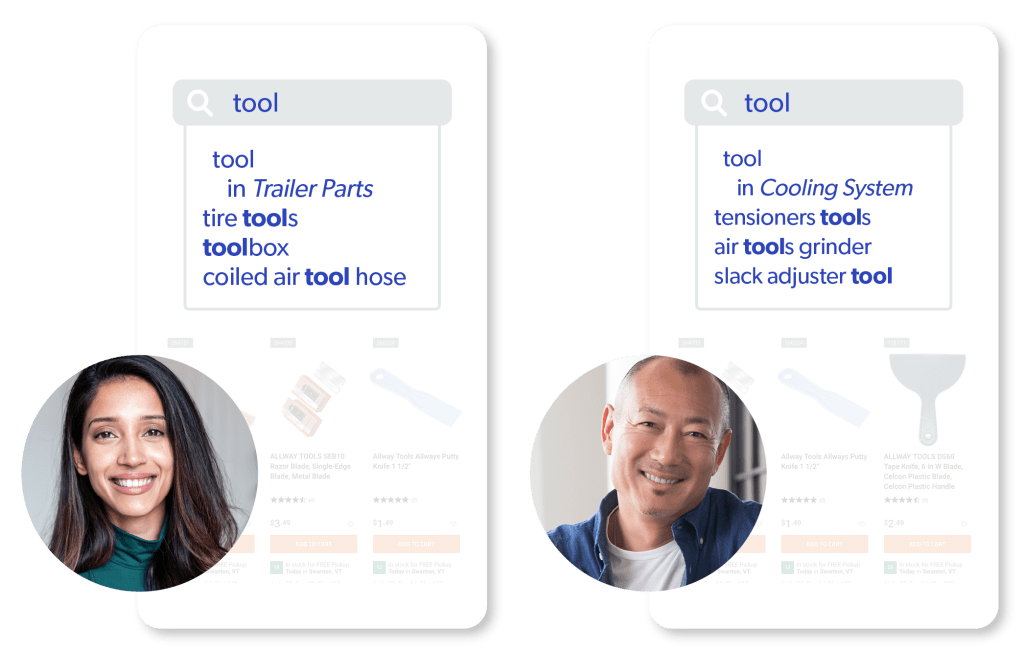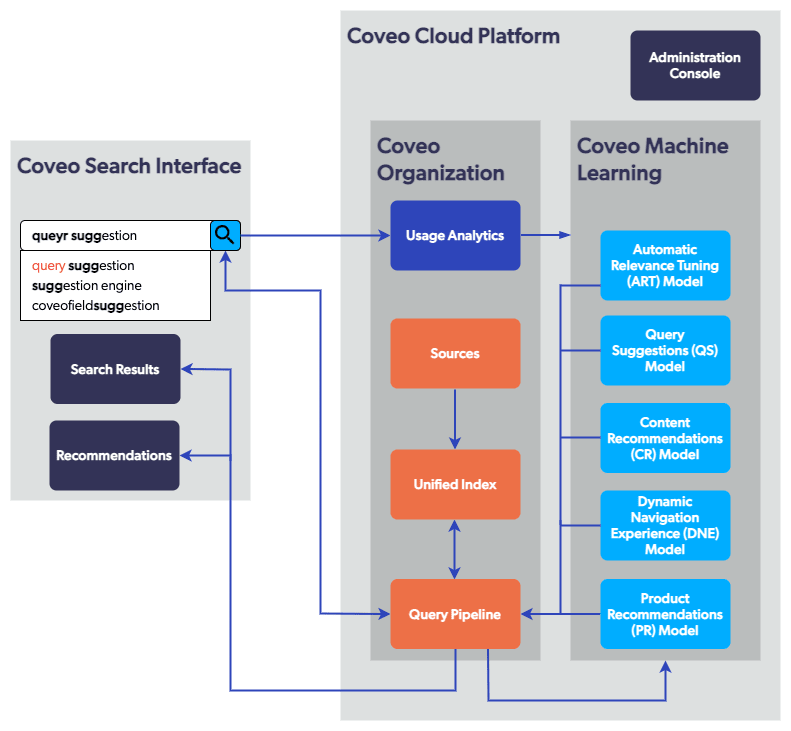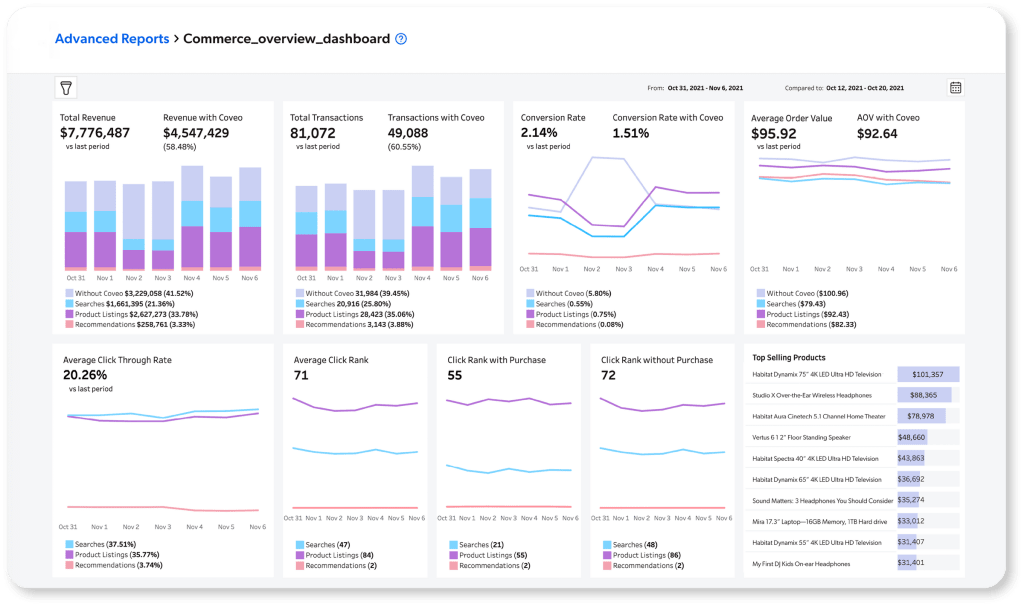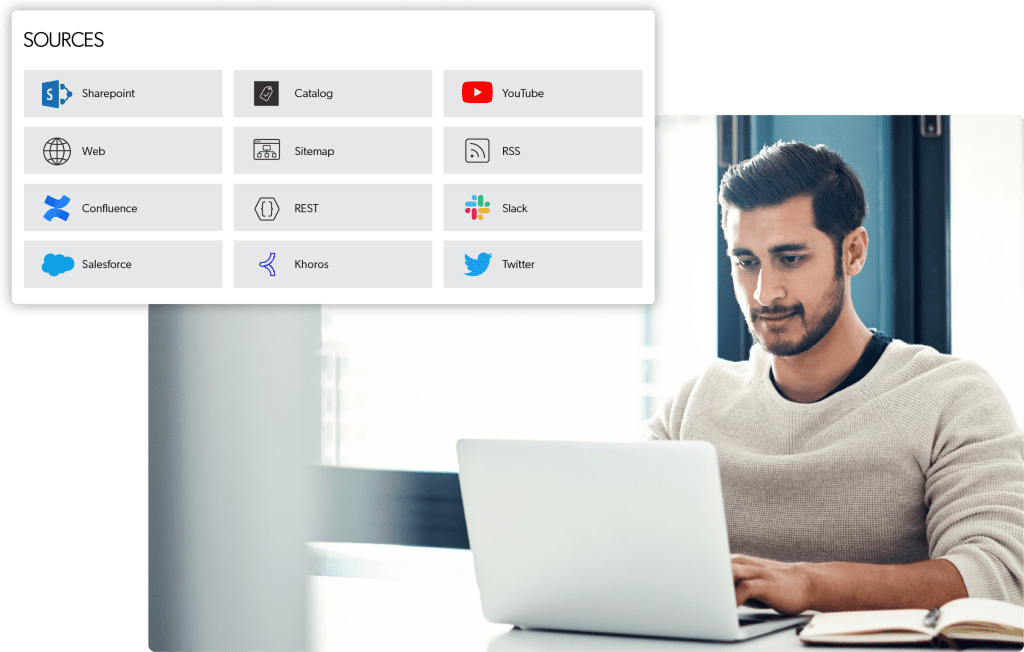Still stuck on Endeca search? We can’t overstate the impact of great search on ecommerce conversions.
In 2021, U.S. retailers lost an estimated $333 billion to bad search experiences. How did we get this number? Well, multiple the mean number of times (4) the onsite search function did not provide the item the consumer was looking for within the past month, by the median cost ($32) of the last item searched for multiplied by 12 months and 217 million online consumers, per the U.S. Census (The Harris Poll on behalf of Google Cloud).
Handling your site search experience on a legacy, overly-complex platform like Endeca can be poisonous to your profit.
This happens because Endeca doesn’t (and won’t ever) include any artificial intelligence or machine learning models. It requires maintaining search relevance and complicated configurations. This is both time-consuming and difficult to A/B test.
Without a roadmap for continued innovation for Endeca, commerce leaders who don’t want to continue losing conversions may want to consider a replacement. A modernized search platform like Coveo offers personalization capabilities like insight engines, AI, and advanced analytics to craft recommendations that convert.
Still not convinced? In this post, we will cover five areas to consider regarding migrating from Endeca to Coveo’s powerful AI search.
5 Reasons to Migrate from Endeca Search to Coveo
#1: Personalization
Today’s consumers want an ecommerce experience that is navigable, compelling, and being treated as unique individuals. A great personalized experience starts with search – but requires much more. Starting with relevant recommendations for items, and content for all types of customers that visit your site across every touchpoint to name a few.

To meet this demand, many merchants are turning to emerging technologies like AI and machine learning that provide relevant search results and personalized recommendations to every shopper.
Endeca’s Challenges: Endeca does not have AI or machine learning capabilities, which means there is no way to leverage user behavior to continuously and effectively optimize results (e.g., average order value and search conversions).
Where Coveo Wins: Coveo’s main area of expertise (after robust search) is AI and machine learning. The platform is built around the understanding that AI can free your web and marketing team from manual, hands-on work of segmentation and personalization rules without compromising user experience.
By incorporating natural language processing, Coveo understands customer intent and delivers more accurate and personalized search results. Merchandising optimization is done automatically with reporting, freeing up time for merchandisers to concentrate on other areas of importance.
New advancements in data capture and attribution, product embeddings, and multi-device tracking allow recommenders to be precise with their recommendations. It’s also important to note that the platform incorporates a balance between displaying the most relevant products, and promoting the products the company has prioritized for sale. Personalization should serve customer needs without sacrificing business goals.
Good to know: Coveo uses AI in its capabilities for cross-selling and upselling. This has shown to increase profits (not just sales) from higher conversions, lower cost to serve, and increased loyalty.
#2: Search Across All Data Sources
Regardless of how powerful a software system is, if it’s not accepted and embraced by its intended users, it will fail despite its efficiency. That’s why business user tools are a critical part of a software evaluation.
Endeca’s Challenges: Endeca’s business tools are complex and lack flexibility. They don’t support merchandising managers with the tools on a non-technical level, which becomes a barrier for teams trying to avoid heavy reliance on developers.
Where Coveo Wins: Coveo customers have peace of mind that all of their products are searchable. The most relevant product (and information) for each customer will be presented — without the need to manually build rules for every possible promotion or product.

This is accomplished using the platform’s Automatic Relevance Tuning (ART), which uses data from other shoppers’ behavior to understand ideal products for each customer — whether through the search bar, a product recommendation, cross-sell, or upsell. Again, this employs personalization driven by machine learning.
Good to know: Some of Coveo’s key offerings include out-of-the-box reporting, model testing, and proactive alerts so that administering the solution and customizing it to optimize performance is easily accomplished with low-to-no development requirements.
#3: Scale and Performance Reporting
Reporting is perhaps the lifeblood of search optimization. It’s the only clear way to determine if your search results are keeping pace with your overall strategies and whether you can continue to achieve your business goals.
Endeca’s Challenges: Endeca does not include reporting, and business users cannot evaluate the performance of the overall search platform. As with many of its limitations, a lack of reporting inhibits users from making effective improvements to enhance search performance.

Where Coveo Wins: When it comes to reporting, Coveo provides deep search analytics and offers many ways of viewing reports. Business users can control different reporting aspects without help from developers. They can set up users who have access to reports, check on report health, and filter reports with advanced conditions to check activity in real-time.
Good to know: The visit browser allows users to go granular and see what the actual search journey looks like. Users have found they can leverage Coveo’s reporting capabilities to find gaps in their content strategy, for example, identifying products, certain features, or higher selling bundles that should be added.
#4: Self-Tuning Search and Multi-Indexing
Ecommerce shoppers can be eager to click and convert — but they’re as quick to bounce if their expectations aren’t met. Our competitive commerce environment raises the stakes when it comes to search indexing, a crucial aspect of meeting shoppers’ needs.
Endeca’s Challenges: Endeca’s intake of data is known to be slow and cumbersome. A very specific and high skill level is needed for customizations, which can be a burdensome expense – especially as companies look to invest in other resources to advance their digital strategies.
How Coveo Wins: Coveo is a cloud-native, multi-tenant, SaaS platform, which allows for faster indexing speed. The average Coveo installation indexes more than 1 million items per hour.
A key advantage is that Coveo creates a single source of truth by bringing your data into one place with a powerful unified index. The flexibility of Coveo’s index allows you to integrate different kinds of sources. It supports dozens of connectors: there are no limits to what Coveo’s engine can index.

When it comes to configuration, the platform has a large library of pre-built connectors, creating a simple indexing process, and removing the need to build it yourself. If a connector doesn’t exist, Coveo offers alternative routes like enabling your content from various sources, such as public websites or secure apps to the index.
Good to know: Coveo can securely index from both cloud and on-premises. Quickly configure the platform through a web-based user interface. A typical production index can process more than 1 million items per hour. Catalog items are usually much smaller than large PDFs or rich text documents, with a faster indexing speed.
#5: Multilingual Support
For many companies, digital expansion growth strategies include breaking into new markets. In fact, a recent survey of Pivotree customers found that 36 percent of respondents indicated that Geographic Expansion will be their primary growth strategy in the next 3 to 5 years.
Endeca’s Challenges: When it comes to multilingual support, Endeca has fallen behind. The software’s language limitations are simply not fit for enterprise-level, multinational companies with expansion plans. Indexing multiple languages in a single index requires advanced configuration and Endeca-specific skillsets.
How Coveo Wins: The Coveo platform is multilingual and can index content written in 43 languages easily in a single index. Its Machine Learning features and JavaScript Search Framework user interfaces also support a wide array of languages.
Good to know: Review the extensive list of supported languages here.
To Migrate or Not — the Decision Should Be Easy
With a nearly endless array of options at their fingertips, shoppers’ expectations for a frictionless and personalized ecommerce experience are at an all-time high. Leading merchants need commerce solutions that support the push for digital growth.
Deciding to migrate an integral part of your commerce site to a new solution is not usually easy. But in this case, an AI-powered search engine that can deliver relevant search results and product and content recommendations based on individual commerce journeys should be a no brainer.
Dig Deeper
Ready to level up your ecommerce site? Get a walkthrough of Coveo’s capabilities, on-demand.


